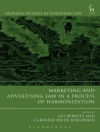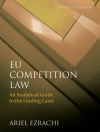How to envision a justice system that combines the least possible punishment with the greatest possible healing, from an all-star cast of contributors
“An extraordinary and long overdue collection offering myriad ways that we can and must completely overhaul the way we imagine as well as implement ‘justice.’”
—Heather Ann Thompson, historian and Pulitzer Prize–winning author of Blood in the Water
After decades of overpolicing and ever-more punitive criminal justice measures, the time has come for a new approach to violence and community safety. Parsimony and Other Radical Ideas About Justice brings together leading activists, legal practitioners, and researchers, many of them justice-involved, to envision a justice system that applies a less-is-more framework to achieve the goal of public safety. Grounded in a new social contract heralding safety not punishment, community power not state power, the book describes a paradigm shift where justice is provided not by police and prisons, but in healing from harm.
A distinguished cast of contributors from the Square One Project at Columbia University’s Justice Lab shows that a parsimonious approach to punishment, alongside a reckoning with racism and affirming human dignity, would fundamentally change how we respond to harm. We would encourage mercy in the face of violence, replace police with community investment, address the trauma lying at the heart of mass incarceration, reduce pre-trial incarceration, close the democracy gap between community residents and government policymakers, and eliminate youth prisons, among other significant changes to justice policy.
关于作者
Bruce Western is the Bryce Professor of Sociology and Social Justice and director of the Justice Lab at Columbia University. He has been a Guggenheim Fellow, a Russell Sage Foundation Fellow, and a fellow of the Radcliffe Institute of Advanced Study. The author of Homeward: Life in the Year After Prison and Punishment and Inequality in America and co-author (with Jeremy Travis) of Parsimony and Other Radical Ideas About Justice (The New Press), he lives in New York City.












